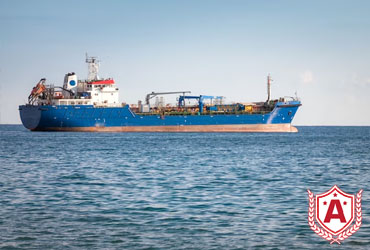Updated on May, 23 2024 06:55 IST
 Study Marine in abroad countries is an aspiration that many students strive hard to achieve. Marine is a vast field involving many subjects. And students can expect to get the best possible student experience when they pursue a degree in this specialization abroad. You will get to study a spectrum of different topics from biology, chemistry, physics, geology, and ecology. By studying the marine specialization, students will be better equipped to understand the complex systems governing our planet's oceans. You will also gain ample expertise that will enable you to address the pressing environmental challenges confronting these vital marine ecosystems. Studying marine abroad will provide you with many facilities, from excellent curriculum to the amazing teachers who will explain each topic to you in a detailed manner. You can also expect a lucrative pay scale and respect from employers worldwide. The curriculum for marine science programs typically includes core courses in oceanography, marine biology, marine ecology, marine geology, and marine conservation. Of course, the elective courses that come along are an interesting bonus! Does this sound interesting to you? Are you also willing to pursue this specialization from a foreign university? Then you must be aware that the procedures and applications feel overwhelming. But with the right information, nothing is difficult to achieve. So here is a detailed account of all you need to know about studying marine abroad!
Study Marine in abroad countries is an aspiration that many students strive hard to achieve. Marine is a vast field involving many subjects. And students can expect to get the best possible student experience when they pursue a degree in this specialization abroad. You will get to study a spectrum of different topics from biology, chemistry, physics, geology, and ecology. By studying the marine specialization, students will be better equipped to understand the complex systems governing our planet's oceans. You will also gain ample expertise that will enable you to address the pressing environmental challenges confronting these vital marine ecosystems. Studying marine abroad will provide you with many facilities, from excellent curriculum to the amazing teachers who will explain each topic to you in a detailed manner. You can also expect a lucrative pay scale and respect from employers worldwide. The curriculum for marine science programs typically includes core courses in oceanography, marine biology, marine ecology, marine geology, and marine conservation. Of course, the elective courses that come along are an interesting bonus! Does this sound interesting to you? Are you also willing to pursue this specialization from a foreign university? Then you must be aware that the procedures and applications feel overwhelming. But with the right information, nothing is difficult to achieve. So here is a detailed account of all you need to know about studying marine abroad!
And if you still have any questions related to studying marine courses abroad, come to Anigdha Overseas Education Consultants for help. We have years of experience serving students and helping them choose the best countries, the most prestigious universities, most fruitful courses, and a lot more related to studying marine abroad. Call us today!
| Duration | Bachelors: 3-5 years Masters: 1-3 years. |
| Cost of Study | $25,000 to $34,000 per year |
| Medium of Instruction | English |
| English Proficiency | TOEFL or IELTS |
| Field of Study | Science |
| Best Countries for Studying Marine | Australia, UK, USA, Iceland, Japan, Portugal, Germany, Spain, South Africa, etc. |
| Number of Intakes | 2 (Spring and Fall) |
| Number of Foreign Universities Available | 500+ |
| Specializations Available | Many |
Given the abundance of countries offering marine studies, selecting the most suitable location can be a daunting task. However, with the help of the right education consultant specializing in overseas education counselling, you can easily shortlist the top destinations for pursuing marine studies overseas from across the globe. Here’s a detailed account of the popular countries where you can pursue a degree in marine specializations:
USA:
Studying marine in the USA provides students with an array of opportunities that are rarely found anywhere else in the world. The country boasts some of the most renowned institutions for marine studies.
Numerous career paths
Lucrative salaries
Amazing teachers
Excellent research facilities
UK:
Studying marine in the UK offers a unique opportunity to explore some of the best specializations. It also gives you access to state-of-the–art facilities and the most skilled professionals teaching in a supportive environment.
Extensive network of marine research institutions
Unparalleled opportunities
Hands-on learning experience
High-tech laboratories
Australia:
Australia is a fascinating country that presents an ideal opportunity for students who wish to study marine life. The country offers excellent academic facilities and professional development prospects after education.
Outstanding research opportunities
World-class academic institutions
Hands-on fieldwork experience
Many internships and job opportunities
Canada:
Studying marine in Canada provides students with a unique opportunity to explore and understand this subject in depth. With world-class research facilities and the most seasoned experts.
Top-notch programs in marine
Many highly-paying jobs
Multicultural environment
A world leader in maritime technology
New Zealand:
New Zealand offers some of the best reasons to study marine sciences, with its unique approach to teaching and welcoming environment for foreign students. New Zealand also boasts world-class research facilities.
Expert faculty members
Exceptional internship programs
High standards
A welcoming culture
Ireland:
Ireland is a hub for cutting-edge research on marine biology and ecology. Top-tier universities offer degree programs in marine sciences that attract students from all over the world who want to learn about this subject.
Many scholarships available
Plenty of job opportunities
English-taught programs
Many renowned universities
France:
France offers some of the best opportunities for studying marine life. The country is home to top-rated universities, making it an ideal location for aspiring marine specialists.
Access to cutting-edge technology
Advanced facilities
A wide range of programs
Hands-on experience through internships
Germany:
Germany is a prime destination for students who want to study marine, thanks to its affordable education system. German faculties are renowned worldwide for their excellence and expertise in the field of marine biology.
Top-notch education
Welcoming and multi-cultural environment
Excellent job prospects
Learn a new language
Italy:
Italy is a country that offers an incredible wealth of opportunities for students studying marine sciences. Italy boasts world-class research institutions dedicated to oceanography and marine biology.
Cutting-edge facilities
Hands-on learning opportunities
Lucrative job opportunities
World-class universities
Singapore:
Singapore is the ideal destination for studying marine life due to its skilled faculty members and a unique set of opportunities. This provides an excellent learning environment for aspiring marine scientists.
A good reputation with employers
A unique learning experience
High quality of life
A multicultural society
Spain:
Spain is a prime location for studying marine science due to its opportunities to study in prestigious institutions. These have highly regarded programs in marine biology and oceanography.
Hands-on experience
Multicultural environment
Learn a new language
Many networking opportunities
Switzerland:
Switzerland also has many unique opportunities for those interested in the marine field. So if you are looking for an amazing country that has many research centers and educational institutions, Switzerland should be one of your top picks.
Quality higher education
Reputed universities
Well-known faculty members
A country of innovation
The Netherlands:
The country is home to numerous research institutions, universities and marine organizations which provide high quality education in the field of marine sciences.
Excellent curriculum
State-of-the-art laboratories
Excellent opportunities for practical training
Many great students
Exploring marine life abroad presents exclusive advantages such as experiencing various techniques and being completely submerged in novel cultures. Let's explore some of the benefits of pursuing marine studies overseas:
Global Understanding: Studying marine biology abroad offers a global perspective on marine conservation by exposing students to diverse marine environments and species, leading to a more comprehensive understanding of marine ecosystems.
Hands-on Experience: Studying marine science abroad provides practical, hands-on experience in diverse marine environments, applying theoretical knowledge to develop skills in data collection, analysis, and communication.
Language and Cultural Immersion: Studying marine science abroad fosters intercultural communication skills and expands worldviews through language and cultural immersion.
Access to Unique Resources: Studying marine science abroad can provide access to unique resources and facilities, such as specialized research vessels, laboratories, and equipment that may not be available in their home country.
Networking Opportunities: Studying marine science abroad offers opportunities to connect with global professionals and researchers, valuable for future career prospects.
Personal Growth: Studying marine science abroad can promote personal growth and development by challenging students to become more independent, adaptable, and resilient.
Picking the appropriate marine university overseas can be an intimidating task. The following guidelines may assist you in selecting the most suitable option:
Research the university's reputation: When selecting a university for marine studies, research its reputation through rankings, accreditation, reviews, and history in the field.
Check the program's curriculum: Look for a marine university that offers a program with a curriculum that meets your needs and interests. Make sure the program covers the specific areas of marine studies you want to explore.
Look for experienced faculty: Make sure the university has a team of experienced and knowledgeable faculty members. Check their backgrounds, expertise, and research areas.
Check the university's facilities: Check for modern facilities that support marine studies like labs, libraries, and other resources to aid academic pursuits.
Consider the location: Look for a marine university that is located in a place that interests you. Consider the surrounding environment, opportunities for internships and research, and the overall quality of life in the area.
Check the admission requirements: Make sure you meet the admission requirements for the university's marine studies program. Look for any prerequisites, application deadlines, and required documents.
If you are facing difficulties in selecting the best universities for pursuing a degree in the marine specialization, the seasoned experts from Anigdha Overseas Education Consultant can help you. We take into account your goals and interests, and then help you choose the best university that will inculcate the skills necessary for your success in the future.
The universities listed below are recognized as leading institutions for studying marine sciences abroad. They provide exceptional programs that enable students to gain the knowledge and skills necessary to excel in this field.
USA
| University | City | Global Ranking | Acceptance Rate |
|---|---|---|---|
| Maine Maritime Academy | Castine, Maine | 4 | 57.7% |
| The California State University Maritime Academy | Vallejo, California | 3 | 82.1% |
| Texas A&M University at Galveston | Texas | 66 | 69% |
UK
| University | City | Global Ranking | Acceptance Rate |
|---|---|---|---|
| The University of Plymouth | Plymouth | 651-700 | 85% |
| Newcastle University | Tyne | 122 | 87% |
| The University of Southampton | Southampton | 78 | 77.7% |
Australia
| University | City | Global Ranking | Acceptance Rate |
|---|---|---|---|
| The University of Tasmania | Hobart | 273 | 75% |
| The University of Western Australia | Perth | 92 | 38% |
| Griffith University | Brisbane | 303 | 50% |
Canada
| University | City | Global Ranking | Acceptance Rate |
|---|---|---|---|
| Dalhousie University | Nova Scotia | 308 | 60-70% |
| The University of Victoria | British Columbia | 324 | 65.9% |
| The British Columbia Institute of Technology | British Columbia | 1314 | 89% |
New Zealand
| University | City | Global Ranking | Acceptance Rate |
|---|---|---|---|
| The University of Auckland | Auckland | 123 | 45% |
| The Victoria University of Wellington | Wellington | 223 | 64% |
| The University of Otago | Dunedin | 247 | 58% |
Ireland
| University | City | Global Ranking | Acceptance Rate |
|---|---|---|---|
| University College Cork | Cork | 297 | 41% |
| Queen's University Belfast | Belfast | 233 | 35% |
| The University of Aberdeen | Aberdeen | 220 | 78% |
France
| University | City | Global Ranking | Acceptance Rate |
|---|---|---|---|
| The University of Paris | Paris | 48 | 76% |
| The École Nationale Supérieure de Techniques Avancées de Bretagne | Brest | 188 | - |
| The University of Toulon | Toulon | 1570 | - |
Germany
| University | City | Global Ranking | Acceptance Rate |
|---|---|---|---|
| The University of Bremen | Bremen | 351 | 16.2% |
| The University of Rostock | Rostock | 501 | 50% |
| The University of Groningen | Groningen | 66 | 5% |
Italy
| University | City | Global Ranking | Acceptance Rate |
|---|---|---|---|
| The University of Milan | Milan | 156 | 53% |
| The University of Trento | Trento | 256 | 73% |
| University of Genoa | Genoa | 651-700 | - |
Singapore
| University | City | Global Ranking | Acceptance Rate |
|---|---|---|---|
| The National University of Singapore | Singapore | 19 | 3.2% |
| The Singapore University of Technology and Design | Singapore | 251-300 | 36% |
| The Nanyang Technological University | Singapore | 19 | 36% |
Spain
| University | City | Global Ranking | Acceptance Rate |
|---|---|---|---|
| The Technical University of Madrid | Madrid | 564 | 29% |
| The Autonomous University of Barcelona | Barcelona | 178 | 75% |
| The University of Vigo | Vigo | 866 | 81% |
Switzerland
| University | City | Global Ranking | Acceptance Rate |
|---|---|---|---|
| The University of Zürich | Zürich | 67 | 27% |
| The University of Geneva | Geneva | 125 | 20.8% |
| Zürich University of Applied Sciences | Zürich | 1338 | 27% |
The Netherlands
| University | City | Global Ranking | Acceptance Rate |
|---|---|---|---|
| Eindhoven University of Technology | Eindhoven | 125 | 50% |
| Delft University of Technology | Delft | 61 | 65% |
| Netherlands Maritime University | Rotterdam | 23144 | - |
These were the best universities to study marine courses across the world. But if you are still facing difficulties is making a choice, come to Anigdha Overseas Education Consultants. We have the best experts to help you on your study-aroad journey and you’ll have a hassle free experience with us. Come join hands with us and get the best advice possible.
Acquiring a solid understanding of concepts and skills is imperative for a successful career in marine studies. We'll compare studying marine in India to studying abroad in this section.
| Studying Marine Abroad | Studying Marine in India |
|---|---|
| The quality of marine education at foreign universities is unmatched, especially in countries like Canada, Germany, UK, and USA. The courses cover all aspects of marine science and technology, from oceanography to fisheries. This makes them even more attractive to potential employers when they begin looking for jobs after graduation. | While India has esteemed universities for marine science such as IIT Delhi, NIO Goa, and CUSAT, the quality of education may not be the same as that in foreign universities. |
| Studying marine science abroad offers unique course opportunities and diverse marine science specializations, including marine biology, oceanography, engineering, and geology. This is an excellent way for students to expand their knowledge while gaining valuable experience. | This diversity may not be observed in Indian institutions. This will not foster your growth as much as necessary. |
| You will get many research opportunities in the marine field when you study abroad. Not only will you be able to access research materials and facilities, but also gain extensive knowledge. The knowledge gained through this research can help you specialize in a certain area of marine science easily. | India may not have enough emphasis on the marine subject. Hence the research facilities are less compared to foreign countries. With increased investment from the government in this sector, it could help create new opportunities for researchers to explore new topics. |
| Studying marine science abroad offers a unique opportunity for students to experience diverse cultures and lifestyles. Studying marine science abroad provides a unique perspective on complex problems related to the marine ecosystems. | This may not be possible when you study in India. |
| Studying marine science abroad is considerably more affordable than in India, with so many low-study and free-study programs available in many countries. Added to this is the high number of scholarships available for foreign students that cover a significant part of your educational and living expenses. . | India doesn’t offer ample scholarships or grants when it comes to studying marine. |
This was a comparative take on how studying marine in abroad feels like and how it is in India. If you’re still confused, come to Anigdha for a consultation.
Having knowledge of the average fees for marine studies in different countries is essential for students who are contemplating studying abroad. The following table provides an overview of the fees for popular destinations:
| Country | Average Fees for Studying Marine (USD) |
|---|---|
| Australia | 20,000 - 70,000 |
| Canada | 5,000 - 15,000 |
| China | 2,500 - 15,000 |
| France | 5,000 - 8,000 |
| Germany | 0 - 13,500 |
| Japan | 3,000 - 7,000 |
| Norway | 0 - 3,000 |
| United Kingdom | 10,000 - 40,000 |
| United States | 20,000 - 55,000 |
| Brazil | 2,000 - 10,000 |
| South Africa | 700 - 15,000 |
| New Zealand | 10,000 - 30,000 |
| Singapore | 10,000 - 30,000 |
| Netherlands | 10,000 - 20,000 |
| Russia | 2,000 - 6,000 |
When pursuing higher education abroad, it is important for Indian students to have access to hostel facilities that are both safe and affordable. Here are some of the best accommodation options available to foreign students:
Homestays: Homestays are an excellent option for students willing to study marine abroad. This type of accommodation allows students to gain an insider's view of their host country which cannot be experienced by simply visiting as a tourist. In addition, homestays are generally more economical.
Private and Shared Apartments: Private apartments and shared apartments provide students with the privacy and comfort they need to focus on their studies. Private apartments offer a personal living space, while shared apartments allow multiple students to live together in one apartment.
College Hostels: College hostels are an excellent option for students willing to study marine abroad. They provide a safe and secure environment for students to pursue their studies, with access to on-site facilities such as laundry rooms, library services and computer labs. Most hostels also offer dormitory-style accommodation, which is perfect if you’re looking for a shared living space.
These are some of the best options available to students. Of course, before choosing one, you should consider the availability of all the essential facilities. These facilities include:
Safety and security
Location
Services and amenities like kitchen, WiFi etc.
Cost-effectiveness
For Indian students studying abroad, locating quality Indian cuisine may pose a considerable challenge. Nevertheless, several universities and colleges overseas recognize the necessity for Indian students to have access to their indigenous cuisine and have consequently implemented measures to offer Indian food facilities on their campuses.
Indian food is frequently available on the menu at university dining halls in nations including the United States, Canada, Australia, and the United Kingdom. These dining halls offer a variety of dishes from different regions of India, such as biryani, naan, dal makhani, paneer tikka, and more. Some universities also have Indian food kiosks or stalls that serve freshly prepared Indian snacks like samosas, vada pav, and chaat, providing a quick bite to students on the go.
Let us offer you the most important insights into the various countries that provide cost-effective choices for pursuing marine studies.
| Country | Low Cost Fee or Free Study Opportunities |
| USA | $3,000 to $20,000 |
| UK | $5,000 to $10,000 |
| Australia | Tuition fees as low as $10,000 |
| Canada | Tuition fee as low as $400, part-time job opportunities available |
| New Zealand | $3,000 to $10,000 |
| Ireland | Free UG degree for citizens from Ireland, EU/EEA countries, and Switzerland; many other fee waivers and free accommodation |
| France | As low was $100 per year, many scholarships available |
| Germany | Zero tuition fee in all public universities |
| Italy | $700 to $4,000 |
| Singapore | $2,000 to $12,000 |
| Spain | $500 to $10,000 |
| Switzerland | Exchange programs with zero tuition fees |
| The Netherlands | $2,000 to $10,000 |
Studying marine abroad can be considered a safe option for Indian students, provided they take necessary precautions and remain aware of potential risks. There are several reasons why this is the case, as outlined below.
Safety Measures in Universities: Universities abroad provide various safety facilities to students, including emergency hotlines, campus security, and 24/7 CCTV surveillance to ensure the safety of students on campus.
Safe Accommodation: Many foreign universities provide on-campus housing or assistance in finding secure accommodations near the campus. These residences often include safety features such as fire alarms.
Reduced Crime Rates: Several countries in Europe and the West have reduced crime rates, making them safer places to live and study. This provides a sense of security to Indian students studying abroad.
Access to Emergency Services: In case of an emergency, Indian students studying abroad have access to emergency services like police, ambulance, and fire department.
Anti-Ragging Policies: Most universities abroad have strict anti-ragging policies in place to ensure the safety and well-being of students. Bullying, hazing, and harassment of any kind are not tolerated.
Cultural Sensitivity and Diversity: Foreign universities prioritize cultural sensitivity and diversity, fostering a safe and inclusive environment for all students.
When considering an abroad destination for marine studies, Indian students should take into account the climate factors of the potential study location. Marine studies typically involve a significant amount of time spent on or near the water, so understanding the weather patterns and environmental conditions is essential.
Some key climate factors to consider include temperature, precipitation, wind patterns, and sea conditions. For example, if a student is interested in studying coral reefs, they may want to choose a location with warmer waters, as corals thrive in tropical climates. Conversely, if a student is interested in studying ocean currents, they may want to choose a location with cooler waters, as these are often associated with stronger currents.
Here’s a detailed account that will help you!
USA
Winter: -1 to -12°C
Summer: 21 to 27°C
Autumn: 15-18°C
UK
Winter: 1 to -6°C
Summer: 18 to 21°C
Autumn: 10 to 13°C
Australia
Winter: 8.8°C to - 17°C
Summer: 18°C to 25°C
Autumn: 14°C to 22°C
Canada
Winter: - 5°C to - 30°C
Summer: 20°C to 40°C
Autumn: 5°C to 20°C
New Zealand
Winter: 10°C to 16°C
Summer: 20°C to 25°C
Autumn: 7°C to 21°C
Ireland
Winter: 5°C to 8°C
Summer: 15°C to 20°C
Autumn: 8°C to 14°C
France
Winter: 1°C to 7°C
Summer: 13°C to 25°C
Autumn: 7°C to 18°C
Germany
Winter: -5°C to 5°C
Summer: 9°C to 17°C
Autumn: 10°C to 18°C
Italy
Winter: 5°C to 8°C
Summer: 15°C to 20°C
Autumn: 22°C to 30°C
Singapore
Winter: 24°C to 30°C
Summer: 25°C to 32°C
Autumn: 25°C to 31°C
Spain
Winter: 6°C to 16°C
Summer: 25°C to 35°C
Autumn: 21°C to 31°C
Switzerland
Winter: -14°C to 5°C
Summer:18°C to 28°C
Autumn: 8°C to 15°C
The Netherlands
Winter: 3°C to 17°C
Summer:17°C to 23°C
Autumn: 6°C to 10?
Quality of education is a critical factor to consider when choosing an abroad destination for marine studies. Marine studies require a high level of expertise and hands-on experience, and it is crucial to select a destination that provides top-notch education in this field. It is essential to research and evaluate the academic institutions that offer marine studies in the destination of interest. Some factors to consider include the reputation of the institution, the qualifications and experience of the faculty members, the availability of resources, such as state-of-the-art laboratories and equipment, and the curriculum and course offerings. It is also important to consider the practical aspects of the program, such as opportunities for internships and fieldwork, which can provide valuable real-world experience.
Bachelors
Eligibility requirements for pursuing a Bachelors degree in marine studies abroad can vary based on the country and educational institution. Nevertheless, here are some general eligibility criteria that Indian students should keep in mind:
High school diploma or equivalent
Minimum GPA requirement (varies by institution)
Fluency in the institution's official language (e.g., English)
Standardized test scores (e.g., SAT, ACT)
Transcripts from previous academic institutions
Letters of recommendation from professors, counselors, or other experts
Personal statement or essay explaining interest in marine studies and career goals
Application fee and completed application form
Visa or other travel documentation (depending on the destination country)
Proof of financial support or ability to pay for tuition and living expenses (varies by institution)
Masters
The eligibility criteria for pursuing a Masters in marine overseas may vary across different countries and institutions. Nevertheless, below are some fundamental eligibility requirements that Indian students ought to be mindful of:
A bachelors degree or equivalent qualification in a related field such as marine biology, oceanography, marine engineering, or marine science.
Minimum GPA requirements set by the institution of interest.
Scores from tests of language competence, such as the TOEFL or IELTS for non-native English speakers.
GRE or GMAT scores may be required for some programs.
Relevant work experience in the field of marine studies may be required for certain programs.
Letters of recommendation from professors or employers.
Statement of purpose outlining the candidate's academic and career goals.
Resume or curriculum vitae detailing the candidate's academic and work experience.
Financial documentation proving the candidate's ability to fund their education and living expenses abroad.
Bachelors
Bachelors Documents needed for a marine studies Bachelors degree abroad can vary by university and country. Essential documents for Indian students may include:
Completed application form
Official high school transcript (translated into the language of the destination country, if necessary)
English proficiency certification (e.g., TOEFL or IELTS scores)
Standardized test scores (e.g., SAT or ACT)
Letters of recommendation from teachers or counsellors
Personal statement or essay
Copy of passport
Financial documentation (e.g., bank statements or sponsor letter) to demonstrate the ability to pay for tuition and living expenses
Visa application and associated documents
Medical records or proof of health insurance coverage (depending on the destination country's requirements)
Masters
The documentation needed to pursue a Masters in Marine abroad may differ based on the country and institution that one is applying to. Nonetheless, the following are some commonly required documents:
Completed application form
Official transcripts of previous academic qualifications
Examination results for English language proficiency (such as TOEFL, IELTS)
Curriculum vitae or resume
Statement of purpose or motivation letter
Letters of recommendation
Proof of financial support, such as bank statements or scholarship award letters
Passport-sized photographs
Copy of passport or other identification documents
Medical and health insurance documents
Visa and immigration documents (such as student visa, residence permit, etc.)
Any other relevant documents required by the academic institution or the country of study.
The admission cycles for Marine programs across various countries may differ, albeit typically comprising two intakes accessible to international students.
Fall Intake
The September intake is the primary intake for most universities, while some countries usually permit a fall intake. Here are a few countries:
United States
Canada
United Kingdom
Australia
New Zealand
Norway
Germany
Netherlands
Denmark
Sweden
Spring Intake
Although the autumn intake is widely prevalent for marine programs, certain countries also provide a spring (January/February) intake. The following is a list of a few such countries:
Australia
Canada
Germany
Ireland
Netherlands
Norway
Sweden
United Kingdom
United States
The table below outlines standard marine program durations, but they may vary based on individual university requirements. Indian students should review requirements to align with their goals and timeline.
| Country | Bachelors Duration | Masters Duration |
| United States | 5 years | 1-3 years |
| United Kingdom | 3 years | 1-2 years |
| Canada | 4-5 years | 1-2 years |
| Australia | 3-4 years | 1-2 years |
| Switzerland | 3 years | 1-2 years |
| Germany | 3-4 years | 2 years |
| France | 3 years | 2 years |
| Netherlands | 3 years | 1-2 years |
| Italy | 3 years | 2 years |
| Spain | 5 years | 1-2 years |
| Sweden | 5 years | 1-2 years |
| Denmark | 3 years | 2 years |
| Japan | 4 years | 2 years |
| Singapore | 3 years | 2 years |
| Netherlands | 4 years | 2 years |
| South Africa | 3 years | 1 year |
| United Arab Emirates | 5 years | 2 years |
Admission procedures for studying marine abroad vary by country and university. However, Anigdha Overseas Consultancy can assist Indian students with some general steps, such as:
University Research: Our team can help Indian students research and evaluate universities abroad for Marine programs, providing guidance on requirements, admission criteria, and language proficiency standards.
Program Requirements: We aid Indian students in comprehending program requirements and identifying any prerequisites needed for admission, ensuring eligibility for their preferred university and program.
Admission Criteria: We assist Indian students in comprehending university admission criteria and program requirements. Our team identifies mandatory work experience or letters of recommendation and provides effective guidance for presenting yourself in the application materials.
Language Proficiency Standards: We help Indian students understand admission criteria and program prerequisites, such as work experience and letters of recommendation.
Application Process: We offer Indian students comprehensive guidance and support throughout the application process, ensuring timely submissions and polished application materials.
Visa Process: Our team can help Indian students with the student visa process by providing guidance on requirements, necessary documents, interview preparation, and other aspects.
Come to the experienced team of Anigdha and get the guidance you need regarding admissions to a foreign university.
Depending on the nation and institution, several teaching methods may be used while teaching marine studies overseas. Marine studies are taught in the native language in certain nations. On the other hand, English or another widely spoken language may be used as the language of instruction. In nations where English is not the primary language, as several in Europe, Asia, and Africa, marine studies are frequently taught in English. Also, a lot of colleges and universities throughout the world provide marine studies programmes in English, making them available to students from other countries. However, it is important to note that some universities and institutions may require proficiency in the local language as well as English, especially if students are expected to work with local communities or conduct research in the field.
Let us have a look at the different medium of teaching in countries across the world teaching science courses on the masters and bachelors level:
| Country | Medium of Teaching or Language of Instruction |
| USA | English |
| UK | English |
| Australia | English |
| Canada | English or French |
| New Zealand | English |
| Ireland | English |
| France | English or French |
| Germany | English or German |
| Italy | English |
| Singapore | English |
| Spain | English or Spanish |
| Switzerland | English or German or French or Italian or Romash |
| The Netherlands | English and Dutch |
Studying marine abroad provides Indian students with valuable knowledge and skills in a different cultural and professional environment, leading to various career paths including:
Marine biologist: A marine biologist is an expert in the study of aquatic organisms and ecosystems. They work under different fields as per their specializations.
Aquaculturist: An aquaculturist is a professional who specializes in the cultivation and farming of aquatic organisms. They also help maintain the habitats and help protect endangered species.
Oceanographer: An oceanographer is a scientist who studies the physical, chemical, and biological properties of oceans. Their work encompasses a wide range of topics such as tectonics, ecosystems, currents, etc.
Environmental consultant: An environmental consultant is a professional who specializes in providing expert advice and guidance on a wide range of environmental issues related to marine resources.
Marine archaeologist: A marine archaeologist is a specialist who studies and investigates the underwater world for clues about past human civilizations.
Marine resource manager: A marine resource manager is an individual who plays a crucial role in the sustainable management and conservation of marine resources. They are responsible for monitoring, analyzing, and developing strategies to ensure the protection and preservation of marine ecosystem.
Marine policy analyst: A marine policy analyst is a professional who specializes in environmental and policy issues related to oceans, coastlines, and marine life. Their primary responsibility is to analyze data and policies and make informed recommendations.
India's younger demographic may explore overseas opportunities to pursue marine studies; however, they may encounter substantial challenges. Here are the most common ones:
Cultural adjustment: Indian students may experience culture shock when studying abroad, especially if they come from a small town or rural area. They may struggle to adapt to the new customs, social norms, and lifestyles of the host country.
High competition: India's education system is highly competitive, with millions of students competing for limited spots in top universities, leading to increased pressure, stress, anxiety, and mental health problems.
Limited resources: Indian students from low-income families may face financial barriers to pay for tuition, accommodation, and other study-related expenses abroad.
Prejudice and discrimination: Indian students may encounter prejudice and discrimination based on their race, religion, or nationality, in the form of subtle microaggressions or overt hate crimes.
Homesickness: Indian students studying abroad may experience loneliness and isolation, missing their familiar food, language, and cultural traditions, leading to homesickness and depression.
At Anigdha Overseas Consultancy, we help Indian students pursue academic aspirations abroad with our expert guidance and support from experienced professionals.
What is marine biology?
Marine biology is the study of living organisms in the ocean and other saltwater environments. This can include anything from tiny plankton to large whales and everything in between.
What skills do you need to study marine biology?
Studying marine biology requires a strong foundation in science and maths, as well as an ability to think critically, work well in teams, and communicate effectively.
Where can you study marine biology?
Top marine biology programs are located worldwide, especially near the coast, with leading schools like UC San Diego, the University of Miami, and the University of Queensland.
What kind of research is conducted in marine biology?
Marine biology research encompasses diverse areas such as marine organism behaviour and ecology, ocean exploration technology, and specific topics like coral reefs and marine microbiology.
How important is hands-on experience in studying marine biology?
Marine biology programs provide practical experience through internships, field trips, and research projects, essential for developing field research, lab work, and data analysis skills.
I am unable understand which is the best country for pursuing my higher education. Can an education consultant help?
Yes. A seasoned overseas education consultant from Anigdha can help you choose the best country for studying broad. We use a data-driven approach to help you achieve the best results possible by helping you make decisions related to studying abroad.
Get free 1-on-1 counselling with our experts

Are you looking to expand your education abroad and experience all that Germany ...
September, 18 2025
If you're looking for a way to make some extra cash while you're studying, Germa...
September, 18 2025
Germany offers a wide range of opportunities for students to pursue higher studi...
September, 18 2025
There are a variety of scholarships available in Germany, from government-sponso...
September, 18 2025
Are you thinking about studying for a masters in engineering in Germany? If so, ...
September, 18 2025
Germany is one of the most attractive places for international students due to i...
September, 18 2025
Germany is a popular destination for students seeking a quality education at an ...
September, 18 2025
The German language is one of the official languages of Germany so proficiency i...
September, 18 2025